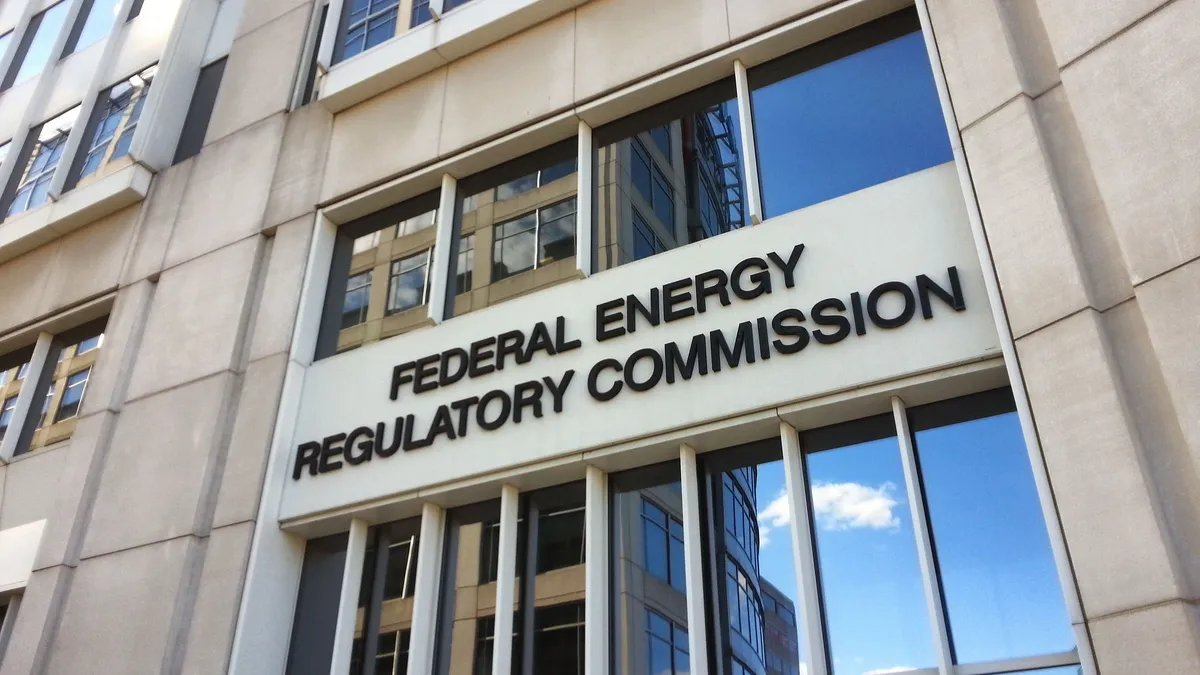Dive Brief:
- Major supporters of a Department of Energy plan to subsidize coal and nuclear generation did not file for a rehearing at the Federal Energy Regulatory Commission after the agency rejected the plan last month.
- FERC on Jan. 8 rejected the DOE's plan to lend cost recovery to merchant coal and nuclear plants with 90 days of fuel onsite. Parties have 30 days to file for a rehearing of the case, but only a nonprofit from New Hampshire had done so when the deadline passed on Wednesday.
- Coal and nuclear interests instead are looking forward to a new regulatory proceeding at FERC on grid resilience to advocate for market pricing changes for their plants. Regional grid operators are set to file responses in that docket next month.
Dive Insight:
Coal and nuclear interests strongly supported the DOE's proposed grid resilience rule, writing in comments to FERC that electric reliability could soon be threatened if federal officials did not take action to support ailing coal and nuclear generators.
FERC disagreed, writing in its decision last month that DOE and its allies failed to prove there is an impending "crisis," as DOE put it, in wholesale power markets, and that the 90-day fuel supply proposal would do anything to improve conditions.
In a filing on Wednesday, the Foundation for Resilient Societies argued that FERC did not adequately address those arguments in its rejection of the DOE plan.
"FERC did not respond meaningfully to comments by Resilient Societies and others who asserted that existing tariffs are unjust and unreasonable," the organization wrote.
An appeal from one nonprofit is unlikely to get FERC to reconsider its unanimous decision, particularly in the absence of filings from major industry players. After FERC's ruling, the Nuclear Energy Institute indicated it would refocus its efforts on a grid resilience proceeding that regulators began in lieu of the DOE plan. The trade group reiterated that strategy on Wednesday.
"The ISOs will file next month with FERC and we will have a month to respond to their filing," John Keeley, director of media relations for NEI, said in an email. "We plan to file response comments."
Coal generator FirstEnergy, whose officials met extensively with FERC regulators to push the DOE plan, also indicated it would not file for rehearing.
"FirstEnergy does not plan to appeal FERC’s NOPR decision," spokesperson Jennifer Young said via email. "We continue the strategic review of FirstEnergy's competitive generation assets."
Discussions in FERC's resilience docket over coal and nuclear compensation are likely to focus on a series of proposals at regional grid operators that look to alter market structures for large, inflexible generators. In their decision, FERC regulators called out ongoing price reforms at PJM and ISO-New England, and DOE officials highlighted PJM's initiative after their proposal was rejected.
"In some respects it wasn't the DOE asking [for market changes]," Deputy Secretary Dan Brouillette said the day after the FERC decision. "It was the people who actually run the grid, the PJM folks in particular and others, who were asking for changes to market rules because they themselves acknowledge in certain cases the providers of this [baseload] electricity are not properly compensated."
Utilities also expect the grid operator proposals to be a focus of FERC's attention in 2018. At a Senate Environment and Public Works hearing on Thursday, the federal policy head for the Edison Electric Institute, a utility trade group, also spotlighted "active discussion in the PJM market about inflexible units and whether they should be compensated better."
"This will be a lively discussion going forward for the foreseeable future," said Phil Moeller, EEI's executive vice president of business operations and regulatory affairs and a former FERC regulator.
Not all are pleased with the PJM reforms, however. On Wednesday, the Organization of PJM States announced its opposition to PJM's capacity repricing proposal, writing it does "not properly respect state laws and policies." PJM, however, indicated last month it would file the repricing proposal for approval at FERC regardless of stakeholder opposition.
This post has been updated to correct Phil Moeller's title at EEI.













